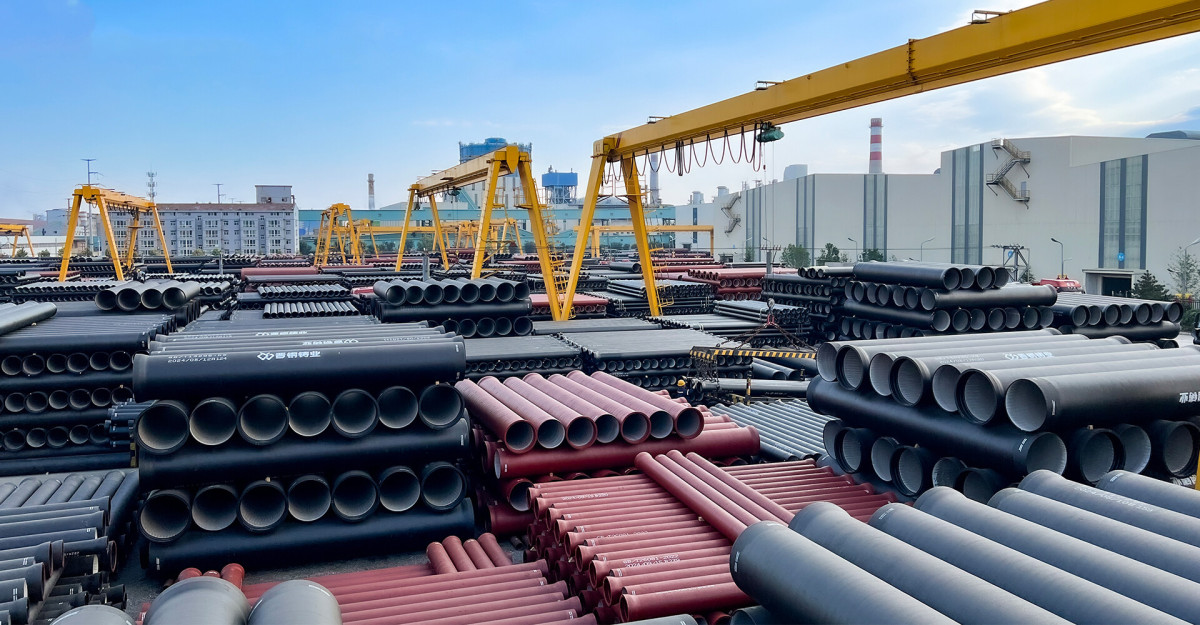NEWS
Ductile Iron Pipes are a type of high-strength, long-lasting, and corrosion-resistant piping material widely used in municipal water supply and drainage, firefighting, industrial applications, and agricultural irrigation projects. The following sections provide a detailed overview of the primary usage scenarios for Ductile Iron Pipes and their key advantages.
Main Applications of Ductile Iron Pipes
Urban Water Supply Networks
- In municipal water distribution systems, Ductile Iron Pipes offer excellent pressure capacity and corrosion resistance, ensuring stable water quality and pressure over the long term.
- Their service life often exceeds 50 years, significantly reducing maintenance and replacement costs.
Industrial Water Supply and Process Pipelines
- Industrial parks and factories typically require high flow rates, high pressure, and, in some cases, resistance to certain chemical corrosion for their water supply or process water pipelines.
- With appropriate anti-corrosion treatments, Ductile Iron Pipes can maintain superior performance even in corrosive environments, meeting industrial production needs.
Urban Drainage and Sewage Treatment
- For urban rainwater and sewage transportation, as well as inlet and outlet pipelines of sewage treatment plants, Ductile Iron Pipes offer high strength and impact resistance, enabling them to withstand complex underground conditions and heavy traffic loads.
- Sealing methods such as rubber gasket or flange connections effectively reduce leakage risks.
Firefighting Networks
- Firefighting systems demand pipelines that can supply water quickly in emergency situations while remaining reliable over long periods of inactivity.
- With high pressure resistance, impact resistance, and long service life, Ductile Iron Pipes are an ideal choice for firefighting water supply and hydrant systems.
Gas Distribution Pipelines (Specific Scenarios)
- While PE pipes or steel pipes are more common for gas pipelines, Ductile Iron Pipes may be used in high-pressure or highly corrosive environments where safety requirements are extremely strict.
- They must be paired with suitable internal and external anti-corrosion measures, as well as safety valves and pressure regulators.
Agricultural Irrigation Systems
- Agricultural irrigation often requires long-distance, high-volume water transportation, and construction conditions can be challenging.
- Ductile Iron Pipes effectively resist soil and environmental corrosion, extending the pipeline’s service life.
Other Municipal and Public Works
- In water conservancy projects, such as water diversion or flood discharge pipelines, or in specialized pipeline requirements for bridges, tunnels, and subways, Ductile Iron Pipes can be utilized.
- Their high strength and reliability make them indispensable in environments requiring robust and safe piping.
Advantages and Features of Ductile Iron Pipes
High Strength and Toughness
- Compared to traditional gray cast iron pipes, Ductile Iron Pipes feature spheroidal graphite distribution, greatly enhancing tensile strength and impact resistance. They maintain considerable toughness under external impact.
Corrosion Resistance
- Common anti-corrosion treatments include zinc spraying, epoxy coatings, or asphalt coatings, providing Ductile Iron Pipes with excellent protection in various water qualities and soil conditions.
Excellent Sealing Performance
- Typically using T-type flexible joints or flange connections, Ductile Iron Pipes have robust sealing properties and can withstand vibration and soil settlement, effectively preventing leaks.
Convenient Installation and Maintenance
- The installation process for Ductile Iron Pipes is relatively straightforward, with high standardization of fittings. This not only shortens construction periods but also simplifies subsequent inspection and routine maintenance.
Overall Economic Efficiency
- Although the initial purchase cost may be slightly higher than some plastic pipes or ordinary cast iron pipes, the extended service life and lower maintenance requirements of Ductile Iron Pipes usually result in more favorable long-term economic benefits.
In summary, Ductile Iron Pipes find extensive and critical applications in urban water supply, industrial fluid transportation, drainage and sewage treatment, firefighting, agricultural irrigation, and other municipal and public works projects. With their high strength, corrosion resistance, longevity, and excellent sealing performance, Ductile Iron Pipes not only meet complex construction demands and stringent technical requirements, but also provide safer, more efficient, and more cost-effective solutions for engineering projects.



